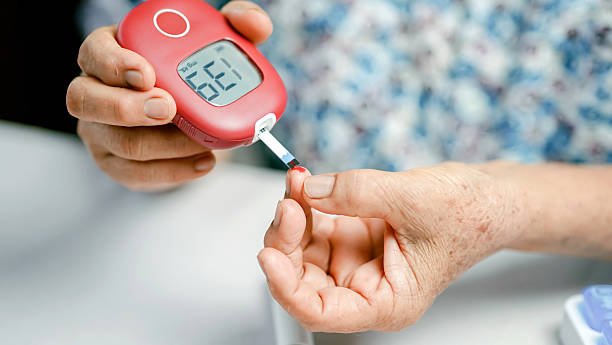As people age, the risk of developing type 2 diabetes increases significantly. Many seniors either live with diabetes or are at high risk due to lifestyle, genetics, and pre-existing conditions. Effective nutrition plans play a central role in managing this condition. They help regulate blood glucose levels, support heart health, and minimize insulin resistance. Seniors also face unique barriers, such as limited mobility or medication side effects that may affect appetite or nutritional intake. Recognizing these challenges is the first step in building a plan that’s both realistic and impactful for long-term diabetic management.
Role of Caregivers in Meal Planning
For many elderly individuals, preparing balanced meals can be difficult due to fatigue, vision loss, or physical limitations. This is where services like PersonalCaregivers Newport Beach become invaluable. Caregivers can assist in grocery shopping, meal prep, portion control, and monitoring dietary compliance. With trained support, seniors are more likely to follow their nutrition plans effectively and avoid potentially dangerous fluctuations in blood sugar. Caregivers can also collaborate with dietitians to tailor meals that meet the specific caloric and macronutrient needs of diabetic seniors, promoting consistency and peace of mind for families.
Building a Balanced Diabetic Plate
An essential part of all successful nutrition plans for seniors with diabetes is the concept of the “diabetic plate.” This method encourages balanced portions of non-starchy vegetables, lean proteins, and complex carbohydrates. Half of the plate should be filled with vegetables like spinach, broccoli, or cauliflower. One-quarter should contain protein such as grilled chicken, tofu, or fish. The remaining quarter can include whole grains or legumes, like brown rice or lentils. This approach ensures nutrient diversity and helps stabilize blood sugar throughout the day. It’s simple, visual, and highly effective.
Managing Carbohydrates Wisely
Carbohydrate intake has a direct impact on blood sugar levels, making its regulation a top priority in diabetic nutrition plans. Seniors should focus on consuming complex carbohydrates like whole grains, beans, and vegetables, which are digested more slowly and cause smaller spikes in blood glucose. Avoiding simple sugars, processed snacks, and sugary beverages is equally important. Portion control and timing of meals also play key roles in blood sugar balance. Careful planning can prevent dangerous highs or lows, especially in seniors who take insulin or glucose-lowering medications.
Importance of Fiber-Rich Foods
Fiber is a powerful ally in managing diabetes. It slows glucose absorption, supports digestion, and helps seniors feel fuller longer. Nutrition plans should include fiber-rich foods like oats, barley, nuts, seeds, and fresh fruits with the skin on. Beans and lentils are also great sources that double as protein and fiber. The recommended intake for seniors is about 25 to 30 grams of fiber per day, which can be spread across meals and snacks. Adequate hydration is crucial when increasing fiber, as it aids digestion and prevents discomfort or constipation.
Healthy Fats for Diabetic Seniors
Fats are an important part of any balanced diet, but not all fats are created equal. For diabetic seniors, nutrition plans should emphasize healthy fats from sources such as avocados, olive oil, flaxseeds, walnuts, and fatty fish like salmon. These unsaturated fats support heart health and reduce inflammation, which is particularly beneficial for those with diabetes-related complications. Saturated fats and trans fats found in fried foods, pastries, and processed meats should be avoided as they can worsen insulin resistance and raise cholesterol. Healthy fat intake helps keep seniors full and improves nutrient absorption.
Snacks That Support Stable Blood Sugar
Seniors often need small, nutrient-dense snacks between meals to keep blood sugar stable and energy levels consistent. Effective nutrition plans recommend snacks that combine protein, fiber, and healthy fats, like apple slices with almond butter, a boiled egg with whole grain toast, or plain Greek yogurt with berries. These snacks help prevent blood sugar crashes and are easy to prepare. Limiting processed snacks like chips or pastries can prevent unnecessary sugar spikes. Caregivers and family members can support seniors by preparing grab-and-go options that are both convenient and nutritious.
Staying Hydrated and Limiting Sugary Beverages
Hydration plays a critical role in managing diabetes, yet many seniors underestimate its importance. Water supports kidney function, regulates temperature, and aids in digestion. Dehydration can worsen blood sugar control and increase the risk of diabetic complications. Seniors should aim to drink 6–8 glasses of water daily, adjusting for any medical advice. Nutrition plans should exclude sugary drinks like soda, sweet tea, or fruit juices with added sugar. Instead, encourage herbal teas, lemon water, or infused water with cucumber or mint for a refreshing, sugar-free alternative.
Vitamin and Mineral Support for Diabetics
Seniors with diabetes may have specific nutrient needs due to reduced absorption or medication interactions. Common deficiencies include vitamin B12, vitamin D, magnesium, and chromium, all of which play roles in blood sugar regulation and energy metabolism. Nutrition plans should incorporate foods rich in these nutrients, such as leafy greens, fortified cereals, nuts, seeds, and dairy. In some cases, healthcare providers may recommend supplements. Monitoring nutrient levels regularly ensures optimal health and prevents additional complications that could arise from long-term diabetes management.
Conclusion
Creating effective nutrition plans for seniors with diabetes involves more than avoiding sugar; it requires a thoughtful, comprehensive approach that supports overall well-being. From managing carbohydrates and incorporating fiber to choosing heart-healthy fats and staying hydrated, every component of the diet plays a role in balancing blood sugar and enhancing quality of life. With the support of family, caregivers, and services like PersonaCaregivers in Newport Beach, seniors can maintain independence while managing their diabetes through smart, consistent eating habits. Nutrition, when approached holistically, becomes a powerful tool for lifelong health and vitality.







